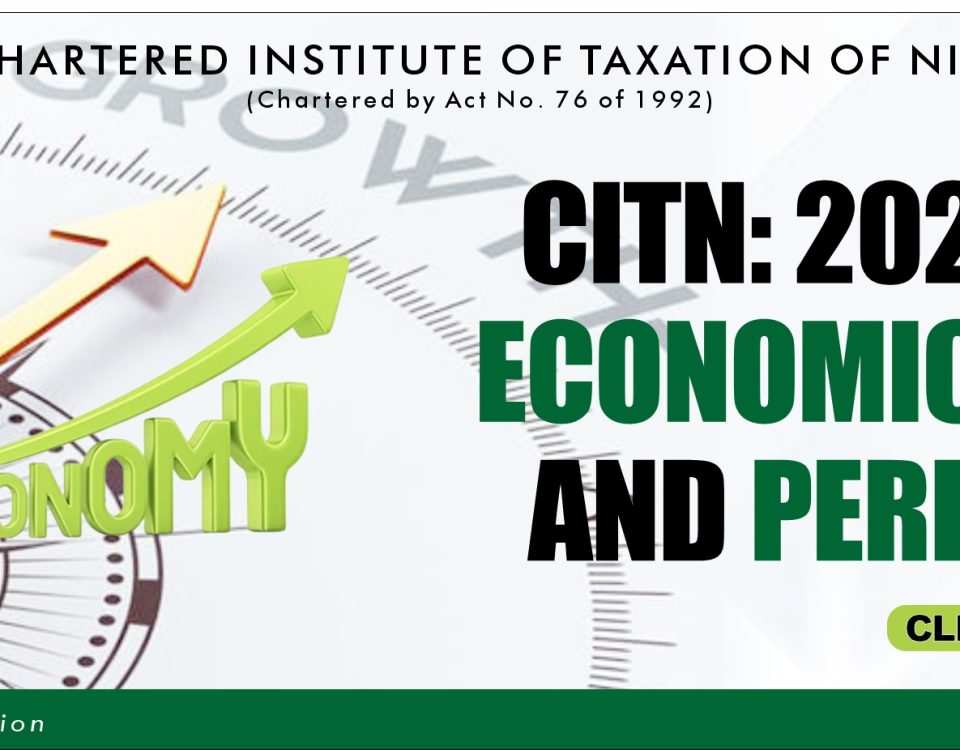- Have any questions?
- 09080888815
- 092918349
- citn@citn.org
Taxing Rights and Global Minimum Tax Rate – An End To Profit Shifting

Taxation of Individuals Other Than Employees in Nigeria: Compliance Guideline
July 15, 2021
FIRS Taxpromax Solution: Filing Requirements and Procedures
July 15, 2021INTRODUCTION
Recently, the top economic officials from the world’s advanced economies reached a groundbreaking agreement to overhaul international tax laws. This has led to the unveiling of a broad agreement that aims to stop large multinational companies from seeking out tax havens and forcing them to pay more of their incomes to governments.
The G7 economies which comprise of Britain, Canada, France, Germany, Italy, Japan, and the United States of America, will work out modalities for the implementation of the new tax system. The Finance Ministers from the Group of Seven (G7) rich nations reached a landmark accord by backing the creation of a global minimum corporate tax rate of at least 15%, an agreement that could then form the basis of a worldwide deal.
Understandably, this will put an end to what U.S. Treasury Secretary Janet Yellen has called a “30-year race to the bottom on corporate tax rates” as countries compete to lure multinationals.
WHY GLOBAL MINIMUM TAX?
Major economies are aiming to discourage multinationals from shifting profits and tax revenues to low-tax countries regardless of where their sales are made.
Increasingly, incomes from intangible sources such as drug patents, software, and royalties on intellectual property have migrated to these jurisdictions, allowing companies to avoid paying higher taxes in their traditional home countries.
GLOBAL WORKABILITY OF MINIMUM TAX RATE
The G7 accord feeds into a much broader and existing effort. The Organization for Economic Cooperation and Development (OECD) has been coordinating tax negotiations among 140 countries for years on rules for taxing cross-border digital services and curbing tax base erosion, including a global corporate minimum tax.
The OECD and G20 countries aim to reach a consensus on both by mid-year, but the talks on a global corporate minimum tax rate are technically simpler and less contentious. If a broad consensus is reached, it will be extremely hard for any low-tax country to try and block such an agreement.
The minimum tax is expected to make up the bulk of the $50 billion-$80 billion in extra tax that the OECD estimates firms will end up paying globally under deals on both fronts.
The global minimum tax rate would apply to overseas profits and governments could still set whatever local corporate tax rate they want, but if companies pay lower rates in a particular country, their home governments could “top-up” their taxes to the minimum rate, eliminating the advantage of shifting profits.
The OECD said that governments broadly agreed on the basic design of the minimum tax but not the rate. Tax experts say that is the thorniest issue, although the G7 accord creates strong momentum around the 15%-plus level.
Other items still to be negotiated include investment funds and real estate investment trusts to be covered; when to apply the new rate, and ensuring it is compatible with U.S. tax reforms aimed at deterring erosion.
WAY FORWARD
A G20 meeting has been scheduled to hold in Venice by July 2020 and this will determine whether the G7 accord gets broad support from the world’s biggest developing and developing countries. There are other pending areas that needs to be resolved- including the metrics that will determine how and to which multinational companies the tax will be applied. The G7 communique left open what will happen in the meantime to digital services taxes on big technology companies in various jurisdictions, which the United States wants to be scrapped as soon as a deal is in place. It only said that there should be “appropriate coordination between the application of the new international tax rules and the removal of all Digital Services Taxes”.
Any final agreement could have major repercussions for low-tax countries and tax havens.
CONCLUSION
The outcome of the G7 meeting and the acceptance by the G20 would determine where the pendulum will swing in the global tax space and one must at this juncture, commend the visionary quality of the G7 members, however, the meeting should consider the developing economies when reaching the applicable minimum tax rate which will not put the low tax countries at a disadvantage and if an agreement is finally reached, it is expedient that implementation would be the next phase. Therefore, there is need for OECD to come up with an implementation policy that will ease the process because implementation for developing economies will surely take several years.
Also, the fact that the global minimum tax rate will permit the home governments of the companies to top up their taxes to eliminate those companies that are taking advantage of shifting profits is a welcome development for developing economies.



